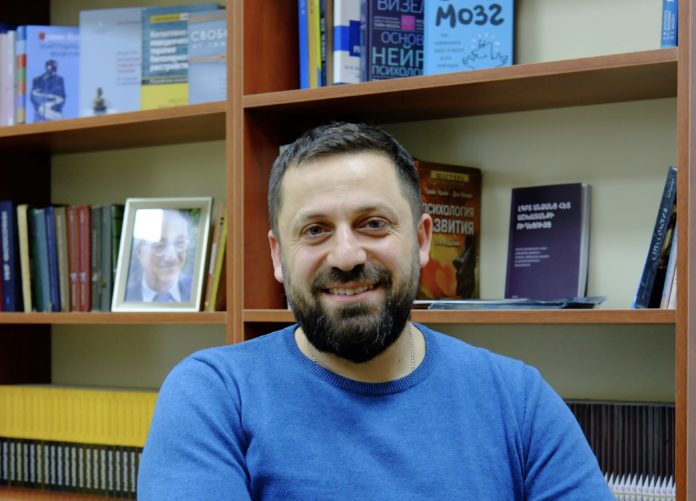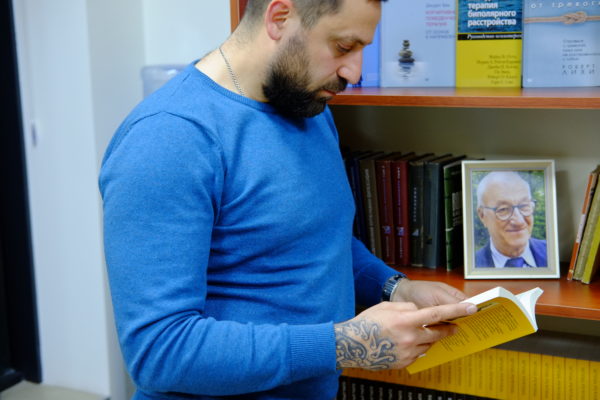YEREVAN — Psychology and psychological services have undergone drastic changes in Armenia, not only in the implementation of new trends and tendencies but also in the elimination of prejudice about the field.
Recently, Arman Begoyan, psychologist, certified psychotherapist, supervisor, and trainer, sat down for an interview. Begoyan is an international affiliate of American Psychological Association, a full member of the Polish Federation for Psychotherapy, the Ethical Body of Eye Movement Desensitization and Reprocessing (EMDR) Psychotherapists’ Association of Armenia, Chief specialist at Hilfmann Psychological Services, and head of Clinical Psychology and Psychotherapy Department of Harmand Hilfmann School of Professional Psychology, a member of the editorial boards of Theory and Practice of Mental Health Care (Russian Federation), Psychopathology and Addictive Medicine (Russian Federation), and Abused Child. Theory, Research, Practice (Poland) peer-review journals.
Stigma
One of the positive trends Begoyan addresses, is the diminishing stigma of seeking help for mental health issues in Armenia. There was a time when asking for psychological help was regarded as something demeaning. However, this perception has changed, and the perception towards psychological issues as a stigma is rarely circulated.
“We must understand that the more we repeat these old concepts, the slower they disappear. During the 44-day war, when I and many of my colleagues volunteered in various medical institutions, there were parents from all parts of Armenia and Artsakh, small towns and distant villages, who were not ashamed to request the help of a psychologist for their wounded sons. With this example, I want to reassure everyone that this stigma is wrong,” said Begoyan.
He noted that some people do not clearly understand what psychologists do or simply regard their work merely as holding a conversation.









